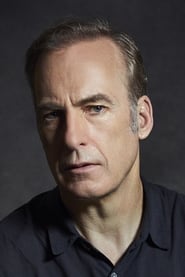
Ask Your Own Question
What is the plot?
Walter White, a high school chemistry teacher in Albuquerque, New Mexico, is diagnosed with terminal lung cancer. Faced with the prospect of leaving his family in financial ruin, he decides to use his chemistry skills to produce and sell methamphetamine. Walter's motivation is primarily to secure his family's future, particularly for his wife, Skyler, and his teenage son, Walter Jr., who has cerebral palsy.
Walter partners with former student Jesse Pinkman, a small-time meth manufacturer. They begin cooking meth in an RV in the desert. Their first batch is a high-quality blue meth that quickly gains notoriety. However, their initial foray into the drug trade is fraught with danger. They encounter Krazy-8, a drug dealer, whom they must deal with after a violent confrontation. Walter ultimately decides to kill Krazy-8 to eliminate a threat to their operation, marking his first step into moral ambiguity.
As Walter and Jesse's operation grows, they attract the attention of local drug lord Tuco Salamanca. Walter and Jesse meet Tuco to sell their meth, and the meeting escalates into violence when Tuco violently attacks Walter. Walter retaliates by using fulminated mercury to create an explosion, impressing Tuco and securing a lucrative partnership. This partnership leads to increased profits but also escalates the dangers they face.
Skyler becomes suspicious of Walter's behavior and begins to investigate. She discovers that he has been lying about his whereabouts and finances. Meanwhile, Walter's brother-in-law, Hank Schrader, a DEA agent, is unknowingly pursuing the very drug operation Walter is involved in. Tension builds as Walter tries to maintain his double life, balancing his family obligations with his criminal activities.
Walter and Jesse's relationship becomes strained as they face challenges from rival dealers and law enforcement. They encounter Mike Ehrmantraut, a fixer for Gus Fring, a major drug distributor. Gus offers them a more stable operation, and Walter reluctantly agrees to work with him, despite his initial reluctance to partner with someone as powerful as Gus.
As Walter becomes more entrenched in the drug trade, he adopts the alias "Heisenberg" and begins to embrace his criminal identity. He becomes increasingly ruthless, making decisions that put his family and Jesse at risk. Walter's transformation is marked by a series of violent confrontations, including a brutal showdown with rival drug dealers and a tense standoff with Hank.
Skyler becomes more involved in Walter's life as she begins to help him launder money through a car wash. She is unaware of the full extent of Walter's criminal activities but grows increasingly suspicious. Walter's lies begin to unravel, leading to confrontations with Skyler and Hank, who is closing in on the identity of Heisenberg.
The tension escalates when Hank discovers that Walter is Heisenberg. This revelation leads to a violent confrontation between the two. Walter's desperation to protect his family leads him to make increasingly dangerous decisions, including manipulating Jesse and using violence against those who threaten him.
In the final season, Walter's actions lead to devastating consequences. He loses his family, his partnership with Jesse deteriorates, and he becomes a target for both law enforcement and rival drug dealers. The series culminates in a series of violent confrontations, including a showdown with Gus Fring, who Walter ultimately kills in a calculated move to take over the drug operation.
Walter's downfall is complete as he loses everything he once held dear. In the series finale, he returns to Albuquerque to confront his past and tie up loose ends. He frees Jesse from captivity, confronts his former associates, and ultimately succumbs to the consequences of his actions. The series ends with Walter's death in the meth lab, symbolizing the complete transformation from a mild-mannered teacher to a ruthless drug kingpin.
What is the ending?
Short Narrative: In the final episode of Breaking Bad, Walter White returns to Albuquerque to tie up loose ends. He confronts a group holding his former business partner's family hostage and uses a rigged machine gun to eliminate them. Walter rescues Jesse Pinkman, who has been forced to cook meth, but Jesse refuses to kill Walter. Walter succumbs to his injuries in the meth lab, dying alone as the police close in.
Expanded Narrative: The series finale opens with a cold, somber atmosphere as Walter White, having returned to Albuquerque after months of hiding, pulls into a desolate parking lot. The weight of his past actions hangs heavily on him. He steps out of his car, revealing a strikingly gaunt face and an unmistakable resolve, his once-pristine demeanor stained by a life of crime.
As Walter prepares for his last stand, he visits his former home, now occupied by a family who seems content in its warmth, contrasting sharply with the coldness of Walter's reality. Nostalgia and regret flicker across his face as he watches from a distance, a shadow of the man he once was.
The scene shifts to a hidden compound where a gang is holding Jesse Pinkman captive, forcing him to cook meth. The tension is palpable as Jesse, beaten down and desperate, toils under duress, his spirit nearly broken. The gang is oblivious to Walter's impending return as he meticulously plans an assault.
In a calculated move, Walter rigs his car with an automatic machine gun, a violent representation of his transformation from meek teacher to ruthless drug lord. The climax unfolds with a chilling precision; as Walter arrives at the compound, a flurry of bullets erupts from his car, catching the gang off-guard and resulting in their swift demise. Walter watches impassively as chaos ensues, a mixture of triumph and horror playing across his features.
With the gang neutralized, Walter finds Jesse, who is horrified yet relieved. In a moment filled with unspoken words, Jesse stands over Walter, gun in hand. Walter urges him to kill him, to end the suffering, but Jesse, in a moment of clarity, refuses. He realizes that revenge won't bring him peace; he must break free of Walter's shadow. Jesse drives away, leaving Walter alone with the remnants of his choices.
A haunting silence envelops the meth lab as Walter wanders through the dim space, his legacy evident in the equipment he once mastered. He collapses, succumbing to the wounds sustained during the battle. The final moments capture Walter amidst the cooling equipment, an ironic culmination of his journey in an empire of his own making. As the police sirens grow louder outside, Walter's breath slows, intertwining his fate with the very world he constructed. The factory lights flicker ominously, underscoring a stark finality as Walter passes away, leaving behind the chaos of his life in a poignant stillness.
Who dies?
Yes, several characters die throughout the series "Breaking Bad." Below is a list of key character deaths, along with the circumstances surrounding each one.
- Krazy-8 (Domingo Gallardo Molina)
- When: Season 1, Episode 5 ("Gray Matter")
- How: After being captured by Walter White and Jesse Pinkman, Krazy-8 is held in a basement. Walter struggles with the moral implications of killing him. Ultimately, he decides to strangle Krazy-8 with a bike lock when he realizes that Krazy-8 is a threat to him and his family.
-
Why: Walter's transformation into a drug manufacturer and his need to eliminate threats to protect himself and his family drive this decision.
-
Tuco Salamanca
- When: Season 2, Episode 8 ("Better Call Saul")
- How: Walter and Jesse confront Tuco in a violent showdown. Walter throws a homemade bomb into Tuco's hideout, killing him and his associates.
-
Why: Tuco's erratic behavior and violent tendencies pose a significant risk to Walter and Jesse's operation, prompting Walter to take drastic measures.
-
Jane Margolis
- When: Season 2, Episode 12 ("Phoenix")
- How: Jane dies from a heroin overdose while sleeping next to Jesse. Walter, who witnesses her overdose, chooses not to intervene, allowing her to die.
-
Why: Walter's decision is driven by a mix of self-preservation and a desire to manipulate Jesse, as he believes that Jane's influence is detrimental to Jesse's potential.
-
Gus Fring
- When: Season 4, Episode 13 ("Face Off")
- How: Walter orchestrates a plan to kill Gus by placing a bomb on Hector Salamanca's wheelchair. When Gus visits Hector, the bomb detonates, killing both Gus and Hector.
-
Why: Gus represents the ultimate threat to Walter's drug empire, and Walter's desire for power and control leads him to eliminate Gus in a dramatic and calculated manner.
-
Hank Schrader
- When: Season 5, Episode 8 ("Gliding Over All")
- How: Hank is killed by Jack Welker's gang in the desert after a violent confrontation. Despite Walter's pleas for Hank's life, Jack executes him in cold blood.
-
Why: Hank's relentless pursuit of Heisenberg (Walter) puts him in direct conflict with Walter, leading to a tragic and heartbreaking end for the character.
-
Gomez (Steven Gomez)
- When: Season 5, Episode 8 ("Gliding Over All")
- How: Gomez is shot and killed by Jack's gang during the same confrontation that leads to Hank's death.
-
Why: As Hank's partner, Gomez is caught in the crossfire of the conflict between Hank and Walter's criminal activities.
-
Mike Ehrmantraut
- When: Season 5, Episode 7 ("Say My Name")
- How: Mike is shot by Walter during a confrontation in the desert. Walter is angry about Mike's refusal to share the names of the men who worked for Gus.
-
Why: Walter's desperation to assert control and eliminate any loose ends leads to this impulsive and fatal decision.
-
Walter White
- When: Season 5, Episode 16 ("Felina")
- How: Walter is mortally wounded by a stray bullet from a machine gun he rigged to a remote control. He succumbs to his injuries in the meth lab.
-
Why: Walter's journey comes full circle as he confronts the consequences of his actions, ultimately sacrificing himself in a final act of redemption and control over his legacy.
-
Lydia Rodarte-Quayle
- When: Season 5, Episode 14 ("Ozymandias")
- How: Walter poisons Lydia with ricin by placing it in her stevia packet during a meeting.
- Why: Walter sees Lydia as a threat to his operation and a potential liability, leading him to eliminate her to protect his interests.
These deaths are pivotal moments in "Breaking Bad," each reflecting the characters' motivations, the moral decay of Walter White, and the consequences of the drug trade. The emotional weight of these deaths resonates throughout the series, shaping the narrative and character arcs.
Is there a post-credit scene?
In the TV show "Breaking Bad," there is no post-credit scene in the traditional sense after the episodes. However, the series finale, titled "Felina," features a significant closing sequence that serves as a powerful conclusion to the story.
In this final episode, Walter White returns to Albuquerque after a long absence. The scene opens with him driving a Chrysler minivan, which he uses to transport a machine gun he has rigged to a remote control. As he arrives at the old car wash where he once worked, he reflects on his past life.
The climax of the episode takes place at the compound where the white supremacist gang is holding Jesse Pinkman captive. Walter confronts the gang, and in a tense standoff, he activates the machine gun, which he had set up in the back of the van. The gun fires, taking out several members of the gang, allowing Walter to rescue Jesse.
After a brief confrontation with Jesse, who is emotionally torn and refuses to kill Walter, Jesse drives away, leaving Walter alone in the compound. The final moments show Walter walking through the meth lab, taking in the equipment and the remnants of his empire. The scene is filled with a sense of finality as he collapses on the floor, succumbing to his injuries, with the camera pulling back to reveal the vastness of the lab, ultimately fading to black.
This powerful ending encapsulates the journey of Walter White, leaving viewers with a haunting image of his legacy.
What is the significance of the blue meth that Walter White produces?
The blue meth, known for its purity and distinctive color, becomes a symbol of Walter White's transformation from a mild-mannered chemistry teacher to a ruthless drug kingpin. It sets him apart in the drug trade and establishes his reputation.
How does Walter White's relationship with Jesse Pinkman evolve throughout the series?
Walter White's relationship with Jesse Pinkman starts as a partnership based on necessity, but it evolves into a complex dynamic filled with manipulation, mentorship, and betrayal, showcasing the shifting power balance between them.
What role does Hank Schrader play in the story, and how does his character impact Walter White?
Hank Schrader, Walter White's brother-in-law and a DEA agent, serves as both a personal and professional adversary to Walter. His relentless pursuit of the drug trade ultimately leads to significant tension and conflict in Walter's life.
What are the circumstances surrounding the death of Gustavo Fring?
Gustavo Fring's death occurs in the fourth season finale, where Walter White orchestrates a plan involving a bomb hidden in a wheelchair to eliminate Gus, marking a pivotal moment in Walter's descent into darkness.
How does the character of Saul Goodman contribute to the plot of Breaking Bad?
Saul Goodman, the flamboyant criminal lawyer, provides legal assistance to Walter and Jesse, facilitating their illegal activities. His character introduces a layer of dark humor and serves as a connection to the broader criminal underworld.
Is this family friendly?
"Breaking Bad" is not considered family-friendly. The series contains numerous potentially objectionable elements, including:
- Violence: There are frequent scenes of intense violence, including shootings, physical fights, and graphic injuries.
- Drug Use: The show revolves around the illegal drug trade, depicting the use, manufacture, and sale of methamphetamine, which may be disturbing.
- Language: Strong language is prevalent throughout the series, with frequent use of profanity.
- Adult Themes: The show explores mature themes such as crime, morality, and the impact of addiction on individuals and families.
- Sexual Content: There are scenes that involve sexual situations, nudity, and suggestive content.
- Emotional Distress: The show often portrays intense emotional situations, including betrayal, loss, and moral dilemmas that may be upsetting for sensitive viewers.
Overall, "Breaking Bad" tackles heavy and complex themes and includes content that may not be suitable for children or sensitive audiences.
Does the dog die?
No, there are no significant instances of a dog dying in "Breaking Bad." The show does have intense and sometimes violent content, but animal deaths are not a focus or notable aspect of the series.



















